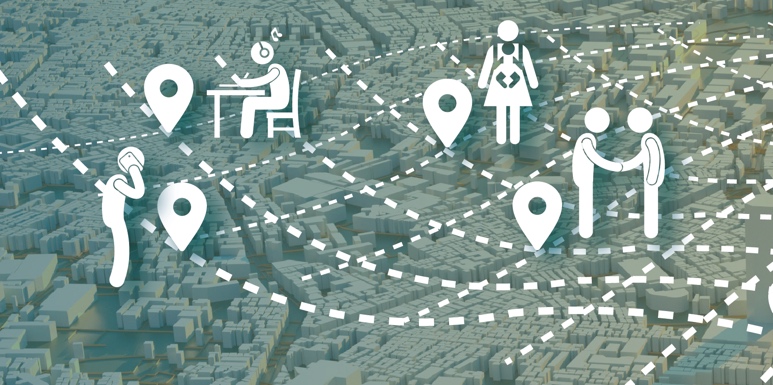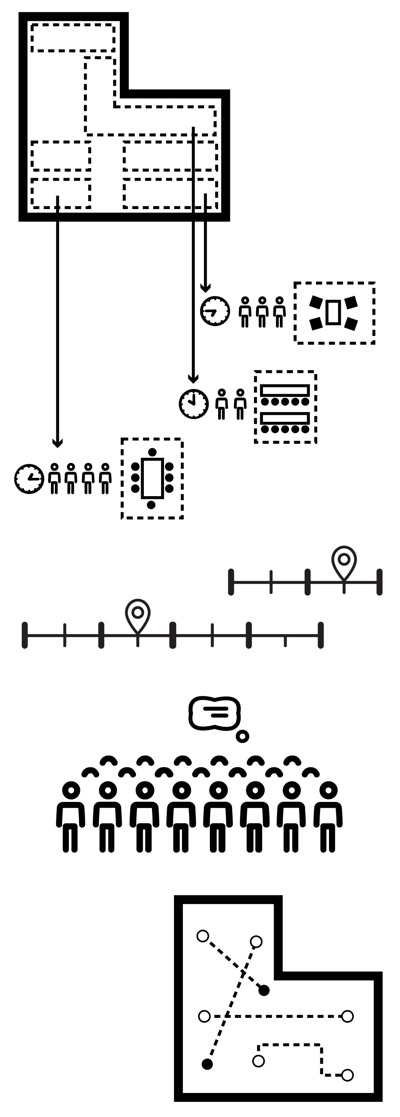
When Engagement Goes Beyond Metrics
PLASTARC partnered with Logitech to optimize their San Jose campus by analyzing the behavioral and spatial drivers of attendance. Through field observations and data on commute patterns and leadership influence, we delivered actionable strategies to right-size the workplace and personalize the "Gravity Day" experience.
Read MoreOur Methods
Workshops
Active workshops have unique agendas designed to optimize employee engagement and yield the greatest design outcomes. The content uses carefully curated precedents and imagery as an efficient catalyst towards extracting group-aligned visioning – adding an essential collaboratively-derived layer of information to our toolbox for analysis and recommendations.
Analysis
The unique analytical typologies PLASTARC has developed pushes our metrics for space far beyond the traditional square footage and simple program catalog and into measurable behavioral and temporal realms as well – essential layers for being critical of the effectiveness of existing spaces and planning for the future.
Interviews
PLASTARC’s four-pronged approach to comprehensive interviewing ensures qualitative discoveries at each level of interaction within the company, as well as a holistic view of the individual drivers and key focus of each user group. Our tailored set of topics digs into those indispensable aspects that may prove to be key players in the process, yet not have the opportunity to emerge through tools such as the surveys and workshops.
Observation and Occupancy
Our tested methodologies for observation and occupancy metrics aligned with client-specific input make for a uniquely comprehensive analysis. The level of rigor with which PLASTARC’s particular Observation Studies are conducted (both in terms of data point counts throughout the day and nuanced activity categories) paired with the additional layers of data collection and validation through existing client systems (such as badge swipes) ensure we’re positioned for a holistic analysis of how and when people are using the spaces.
Surveys
Our surveys are strategically crafted tools that utilize reframing tactics to extract often qualitative data in a raw, analyzable form. The digital implementation of our unique survey architecture allows us to dig down on key facets when responses trigger it without being overwhelming to the user – ensuring a comprehensive and tailored, yet user-friendly collection of qualitative and quantitative data for comparison and tracking.




